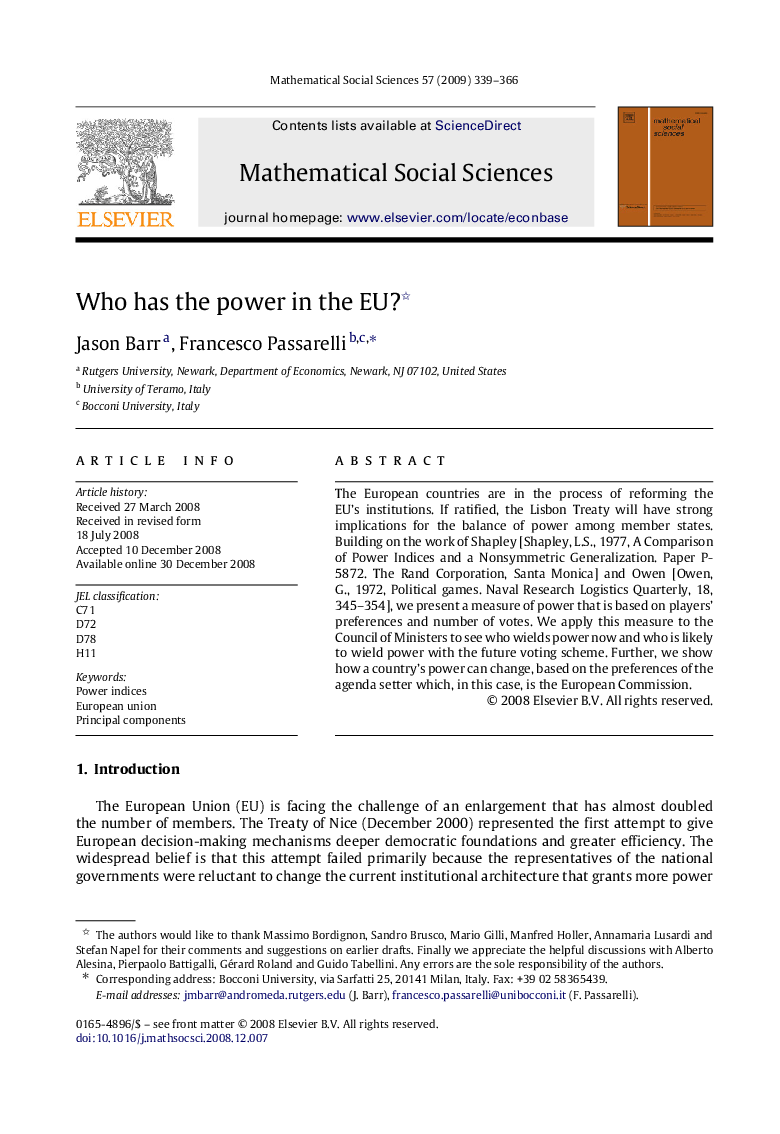| Article ID | Journal | Published Year | Pages | File Type |
|---|---|---|---|---|
| 972765 | Mathematical Social Sciences | 2009 | 28 Pages |
The European countries are in the process of reforming the EU’s institutions. If ratified, the Lisbon Treaty will have strong implications for the balance of power among member states. Building on the work of Shapley [Shapley, L.S., 1977, A Comparison of Power Indices and a Nonsymmetric Generalization. Paper P-5872. The Rand Corporation, Santa Monica] and Owen [Owen, G., 1972, Political games. Naval Research Logistics Quarterly, 18, 345–354], we present a measure of power that is based on players’ preferences and number of votes. We apply this measure to the Council of Ministers to see who wields power now and who is likely to wield power with the future voting scheme. Further, we show how a country’s power can change, based on the preferences of the agenda setter which, in this case, is the European Commission.
